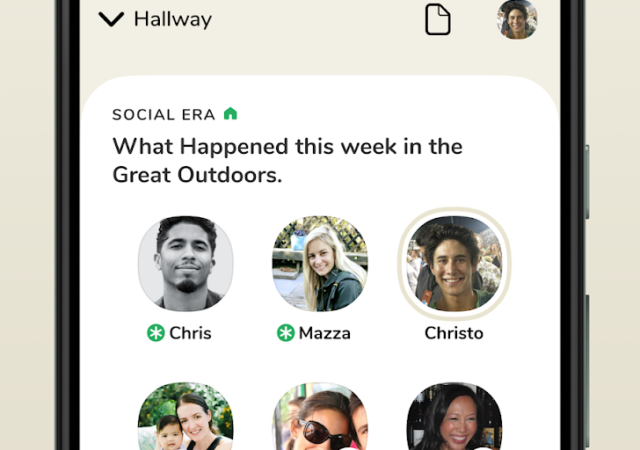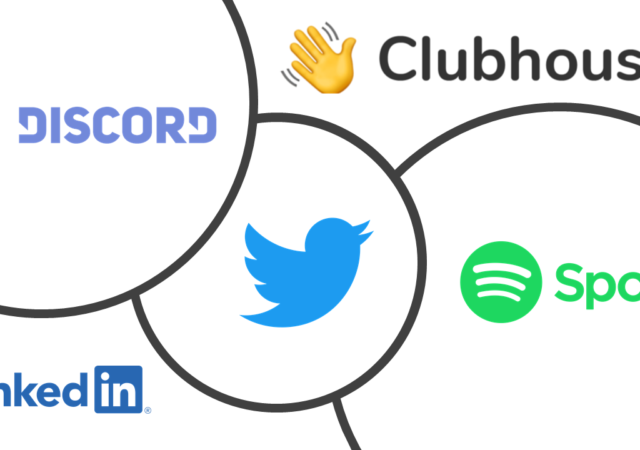Pandemic golden child – Clubhouse – is making a major pivot. The once forum-like social platform is focusing on connecting in a more personal way.
Spotify Live is Being Put Down
Spotify has chosen to shut down Spotify Live finally. There are no mentions on its integration into the Spotify main app.
Now You Can Pin Links in Your Clubhouse Rooms
Clubhouse will start allowing you to pin links on top of rooms to indirectly allow users to monetise their contents on the app.
More Apple Spatial Audio! This Time on Clubhouse!
Apple’s Spatial Audio comes to Clubhouse. Now you can hear conversations in virtual surround sound and feel closer to your friends.
Clubhouse is Now Out of Beta! What Does That Mean?
Clubhouse is now out of Beta mode. With the update they have also removed the waiting list and allowing users to simply join the platform.
Clubhouse to be Available on Android Worldwide by Friday!
Clubhouse, the audio based social media app is going to be available on Android devices worldwide Friday onward.
Clubhouse Coming to Android After More Than a Year in iOS Exclusivity.
There was a debate that raged on a bit in a certain new and upcoming social media app. The app was valued at US$ 4 Billion (MYR*) at its most recent fundraiser too. That social media platform is Clubhouse, and…
Attack of the Clubhouse Clones – Spotify, LinkedIn & Discord Enter the Foray
With Clubhouse creating waves, more social media platforms are jumping on the live audio bandwagon! The latest to join? Spotify, Discord and LinkedIn.
Instagram Live Rooms – Experience video broadcasting with more users on Instagram Now
Instagram launches Live Rooms to allow up to 4 users to host a video chat room at once on both Android and iOS.
- ASEAN Nations Can Now Register for Touch ‘n Go eWallet
- Coursera Leverages OpenAI’s Apps SDK to Empower Self-Learning
- vivo’s OriginOS 6 is Coming to Malaysia, Preview Program Underway
- AONIC Launches MIST Tec 50, A Malaysian-made Drone for Agriculture
- PlayStation Teases Icon Blue Special Edition DualSense Controller and More Merchandise
- user-465340 on Graphisoft is Designing the Future with Mindful Integration of Generative AI, Sustainability and Effiency
- Alan Shelby on Wondershare Repairit Online: A Free and Reliable Video Repair Platform
- Ally on Google Reveals the Pixel Fold, The Next Word in Foldables
- Carol science on HyperSense named in 2022 Gartner® Market Guide for Multipersona Data Science and Machine Learning Platforms
- Gina keveryn on YouTube Removes Public Dislike Count Visibility
- October 2025
- September 2025
- August 2025
- July 2025
- June 2025
- May 2025
- April 2025
- March 2025
- February 2025
- January 2025
- December 2024
- November 2024
- October 2024
- September 2024
- August 2024
- July 2024
- June 2024
- May 2024
- April 2024
- March 2024
- February 2024
- January 2024
- December 2023
- November 2023
- October 2023
- September 2023
- August 2023
- July 2023
- June 2023
- May 2023
- April 2023
- March 2023
- February 2023
- January 2023
- December 2022
- November 2022
- October 2022
- September 2022
- August 2022
- July 2022
- June 2022
- May 2022
- April 2022
- March 2022
- February 2022
- January 2022
- December 2021
- November 2021
- October 2021
- September 2021
- August 2021
- July 2021
- June 2021
- May 2021
- April 2021
- March 2021
- February 2021
- January 2021
- December 2020
- November 2020
- October 2020
- September 2020
- August 2020
- July 2020
- June 2020
- May 2020
- April 2020
- March 2020
- February 2020
- January 2020
- December 2019
- November 2019
- August 2019









